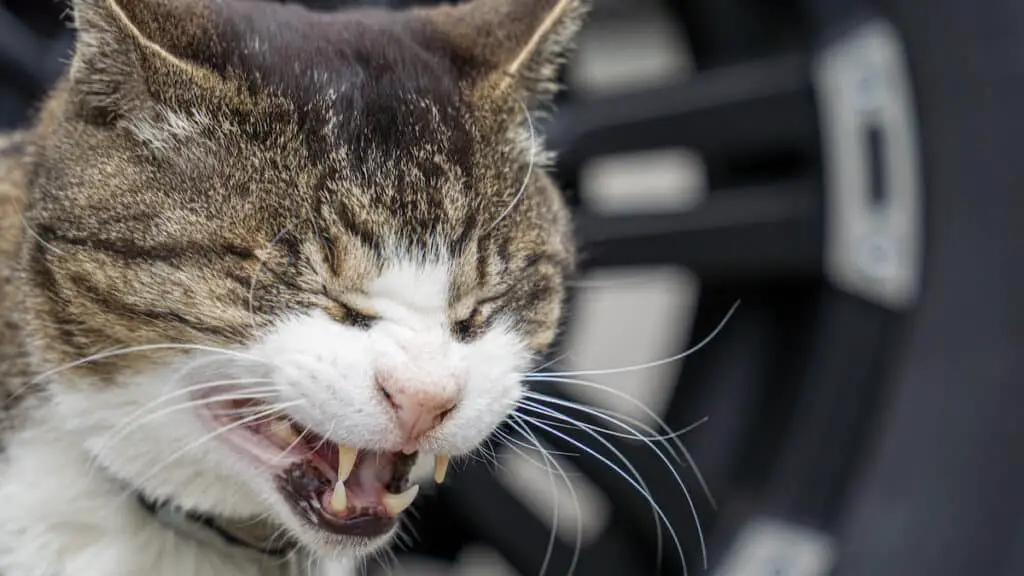Ah, the cat sneeze—it may be one of the cutest sounds you’ll ever hear. But is it ever a cause for concern? If your cat is sneezing a lot, you may be wondering “why does my cat keep sneezing?”. Cats can catch colds and suffer from upper respiratory and sinus infections, but there are other conditions that can also lead to those cute little sneezes.
Why Does My Cat Keep Sneezing?
Sneezing is completely normal in cats. Here are a few normal reasons for a cat to sneeze:
- A simple nose tickle.
- A certain smell, such as chemicals
- Dust and other airborne particles
- A foreign object like a piece of lint, grass or a hair
- A respiratory infection
- Inflammation of nasal cavity and/or sinuses
- Inflammation or infection of a tooth causing drainage into sinuses
If your cat keeps sneezing for over a day, it might be a more concerning cause. If your cat’s health or behavior change significantly, it’s time to take your cat to the vet.
Upper respiratory infections
Sniffling and sneezing are typical symptoms of feline upper respiratory infections. Often referred to as the “common cold” or “the cat flu,” URIs can be viral, bacterial, or even fungal.
Cats of all ages, including kittens and elderly cats, as well as unvaccinated and immunosuppressed cats, are at an increased risk of developing upper respiratory infections. Since many of the viruses that cause these infections are highly contagious, those kept in groups such as shelters or multicat households are also vulnerable, especially if they’re unvaccinated.
Your cat keeps sneezing because of sinus issues.
Cats can also suffer from inflammatory conditions like rhinitis and sinusitis. Rhinitis is the inflammation of the mucous membranes of the nose, which we all know as a “stuffy nose”, and sinusitis is inflammation in the lining of the sinuses.
Chronic Upper Respiratory Problems
Cats may also sneeze frequently and repeatedly if they have chronic respiratory conditions. Chronic rhinitis, the most common of these conditions, is usually the result of permanent damage to the immune system and nasal passages.
If your cat has recovered from a severe acute viral infection, such as feline calicivirus or feline herpesvirus, it may be more likely to suffer from chronic upper respiratory conditions, with symptoms persisting continuously or intermittently. It also may be more likely to suffer from virus reactivation due to stress or illness.
Your cat keeps sneezing because of allergies.
In contrast to humans, cats rarely sneeze due to allergies. Instead, lesions, itching, and hair loss are more commonly seen as symptoms of skin irritations. Aside from coughing, sneezing, and wheezing, some cats can also experience other symptoms, such as itchy and watery eyes. This is especially true of cats who have asthma. Allergy rhinitis, sometimes known as “hay fever,” in humans has seasonal symptoms if induced by outdoor allergens like pollen or year-round symptoms if brought on by indoor allergens like dust and mold.
Vaccines may be causing your cat to keep sneezing.
Some vaccinations, such as those given to prevent upper respiratory infections, can also make cats sneeze. But within a few days, symptoms normally go away on their own.














